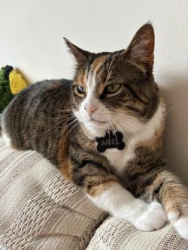|
Knee results….
“Minimal tricompartmental spur formation. Ossific fragment in the anterior aspect of the joint may be an intra-articular body or sequela of prior trauma. Small knee joint effusion“
An intra-articular loose body in the knee is a fragment of cartilage or bone that has detached from the knee joint and floats freely within the joint space, potentially causing pain, locking, or catching.
Here's a more detailed explanation:
What it is:
Loose bodies are pieces of bone or cartilage that become dislodged from the knee joint and move around inside the joint cavity.
Causes:
Trauma: Injuries to the knee, such as fractures or cartilage tears, can lead to loose bodies.
Degenerative Conditions: Osteoarthritis or other degenerative joint diseases can cause cartilage to break down and form loose bodies.
Other Conditions: Synovial chondromatosis (overgrowth of cartilage in the synovium) and osteochondritis dissecans (a condition where a piece of bone and cartilage separates from the joint surface) can also lead to loose bodies.
Symptoms:
Pain: Loose bodies can cause pain, especially when they move or become lodged in the joint.
Catching or Locking: The knee may feel like it's catching or locking, making it difficult to move or straighten.
Swelling: Inflammation and swelling around the knee joint can occur.
Instability: In some cases, loose bodies can contribute to knee instability.
Diagnosis:
Physical Examination: A doctor can often diagnose loose bodies based on the patient's symptoms and a physical examination.
Imaging: X-rays, MRI, or CT scans can help visualize the loose bodies and determine their size and location.
Treatment:
Non-Surgical: In some cases, loose bodies can be managed with physical therapy, anti-inflammatory medications, and rest.
Surgical: If the loose body is causing significant pain or functional problems, surgery may be necessary to remove it. Arthroscopy is a common surgical technique used to remove loose bodies.
__________________
Qui Cantat Bis Orat - He who sings prays twice
Ingrezza 80 mg
Propranolol 40 mg
Benztropine 1 mg
Vraylar 4.5 mg

Gabapentin 600 mg
Klonopin 1 mg 2x daily
|